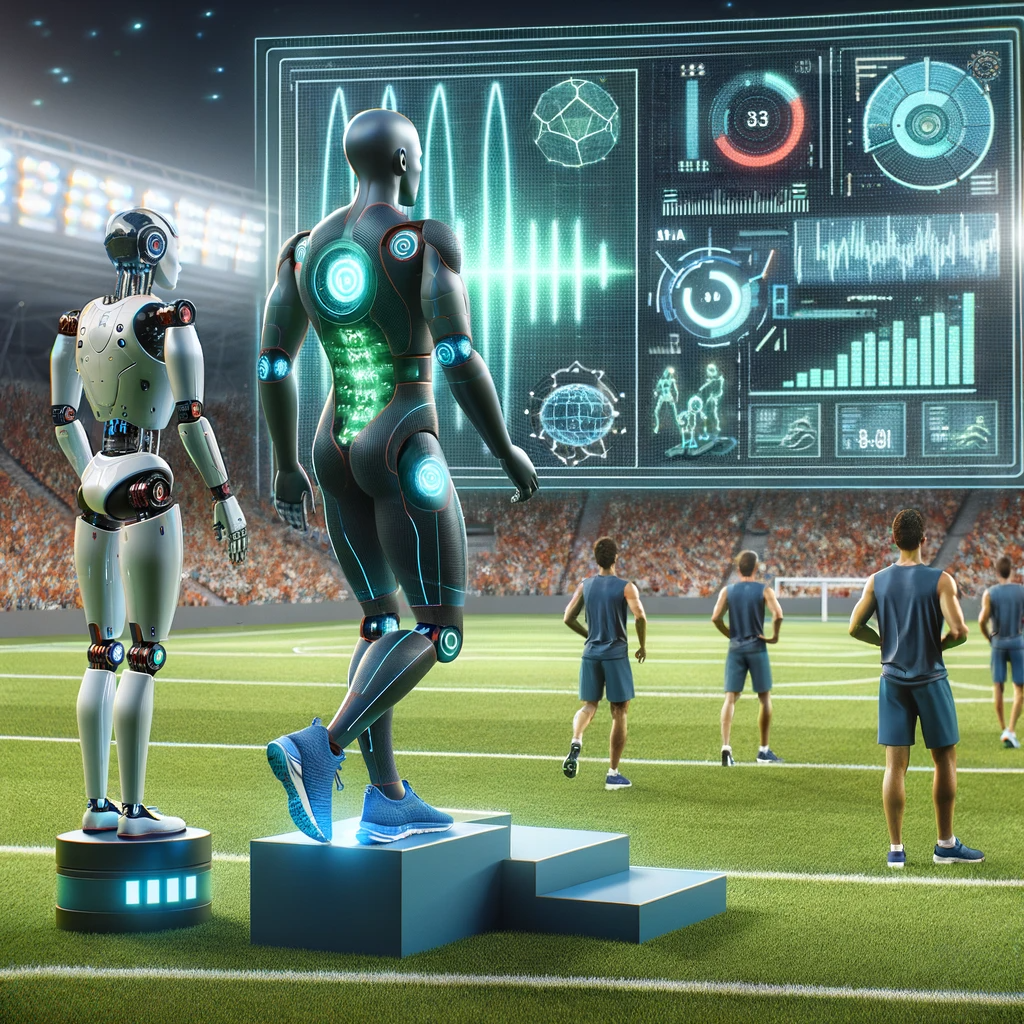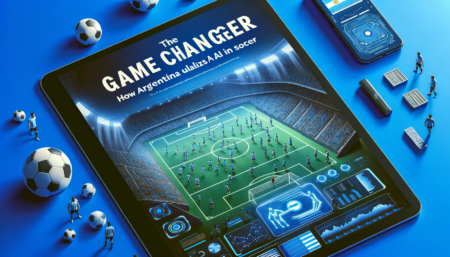Artificial Intelligence Takes Center Stage in the World of Sports
In recent years, the sports industry has embraced the digital revolution, with artificial intelligence (AI) emerging as a pivotal player in this transformation. AI’s foray into sports brings with it a promise of innovation, precision, and a new era of data-driven decision-making. From fine-tuning training protocols to enhancing fan engagement, the application of AI in sports is dynamic and rapidly evolving, offering us a glimpse into the future of athletics.
In this article, we’ll explore how AI is making significant strides in areas such as sports analytics, athlete training, injury prevention, and fan experience. The synergy of AI with sports not only paves the way for cutting-edge competitive strategies but also holds the potential to redefine our relationship with sports as we know it.
AI in Sports Analytics: Outplaying the Competition with Data
Hyper-Analysis for Strategic Edge AI has revolutionized the way teams approach game strategy. By sifting through exhaustive datasets, AI algorithms identify patterns and insights that are imperceptible to even the most seasoned coaches and analysts. From predicting opponent tactics to optimizing team formations, AI-driven analytics empower teams to make informed decisions that could sway the outcome of the game.
Use Cases in the Field Sports franchises such as NBA teams and Premier League football clubs are now leveraging AI for scouting, game analysis, and to maximize player performance. For example, the Toronto Raptors utilize an AI-powered analytics tool to interpret player movement and game flow, leading to more effective plays and defensive strategies.
Athlete Training and Performance Enhancement: Tailored Excellence Through AI
Precision Training with AI In the quest for athletic perfection, artificial intelligence provides a personalized touch to athlete training. By analyzing individual performance metrics collected through sensors and wearables, AI systems tailor training regimens that cater to each athlete’s unique strengths and weaknesses. This data-driven approach helps to prevent overtraining and focuses on areas that need improvement.
AI at the Forefront of Elite Sports Elite sports teams use AI for more than just fitness; they use it for skill enhancement, too. Soccer clubs like FC Barcelona employ AI to analyze players’ decision-making patterns during matches. By dissecting every pass, shot, and movement, AI guides coaches in developing training drills that sharpen the athletes’ on-field instincts.
Injury Prevention and Player Safety: The Predictive Power of AI
Anticipating the Unseen Through Technology AI’s predictive capabilities have become a cornerstone in sports medicine, aiming to reduce athlete downtime and increase career longevity. Through the analysis of training loads, biomechanics, and physiological stress markers, AI algorithms can forecast injury risks, prompting preemptive measures.
Case Studies of Prevention in Action Specific instances of AI-driven injury prevention can be seen in organizations such as MLB teams that utilize AI systems to analyze pitchers’ throwing mechanics, identifying potential elbow or shoulder injuries before they occur. Similarly, wearables equipped with AI provide real-time feedback to runners on their gait, helping to avoid stress-related injuries.
Fan Engagement and the Viewing Experience: AI Transforms Spectatorship
Elevating Interaction to New Heights In a world where fan experience is paramount, AI technology offers an unprecedented level of engagement. From chatbots that provide instant stats and game insights to AI-generated highlight reels personalized for individual preferences, fans are immersed in a tailored sporting universe like never before.
Virtual and Augmented Realities Merge with Sports Immersive technologies such as virtual reality (VR) and augmented reality (AR) are becoming increasingly intertwined with sports, thanks to AI. Fans can now experience what it’s like to be part of the action from the comfort of their homes, with VR simulations of front-row seats or AR projections of players’ stats during live broadcasts. These AI-powered experiences are redefining the way fans connect with their favorite sports and teams.
The Future of AI in Sports: Boundless Horizons and Ethical Playgrounds
Next-Generation Innovations on the Horizon The trajectory of AI in sports hints at a future rife with innovation. From enhancing referees’ decision-making processes with AI assistance to integrating smart stadium technology that can dramatically improve emergency response times, the potential seems limitless. Furthermore, AI is set to revolutionize talent scouting, providing granular insights into an athlete’s potential based on performance data across various levels of play.
Balancing Technology with Ethical Considerations As AI becomes more entrenched within the sports industry, it raises ethical considerations that must be addressed. Concerns such as algorithmic bias, data privacy, and the integrity of the sport itself are paramount. Governing bodies are called upon to strike a balance between harnessing the benefits of AI and maintaining the human essence that lies at the heart of sports.
Conclusion: Embracing AI, Enhancing Sports
AI’s integration within sports is no longer a nascent trend but a burgeoning reality that holds a symbiotic relationship with athletic achievement and fan delight. By combining the timeless human spirit of competition with the precision and insight of artificial intelligence, the sports world stands on the brink of an era where the impossible becomes possible. As we look forward to these advancements, it is imperative to navigate this new landscape with careful consideration for the ethical implications that accompany technological progress.
The intersection of AI and sports is already yielding incredible results, and the coming years promise an exciting continuation of this journey.




